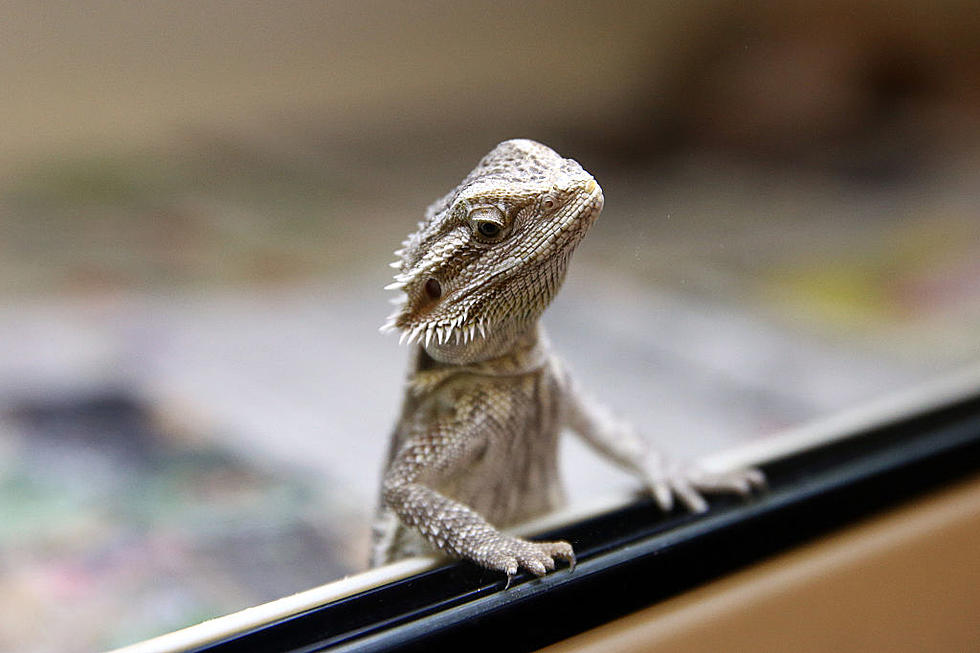
You’ll Never Guess What’s Behind Massachusetts Salmonella Scare
It seems that either outbreaks of salmonella are happening a lot more often lately or they're easier to keep track of with social media and 24-hour news feeds. In any case, the latest blame for a salmonella scare rests on a reptile.
According to the Centers for Disease Control and Prevention, at least 44 people in 25 states, including Massachusetts, have gotten sick from a salmonella outbreak that is linked to popular pet lizards known as bearded dragons.
The CDC reports that the bearded dragons can carry salmonella germs in their droppings even if they appear to be clean and in good health. These germs can easily spread to their bodies and anything in the area where they live and roam.
If you own or have been around one of these pet lizards, you should know that you can get sick from touching not only your bearded dragon but also by touching anything in its environment and then touching your face or mouth and swallowing salmonella germs.
The CDC recommends that you wash your hands thoroughly after handling or feeding them. Also, try to avoid kissing or snuggling with them and people should avoid eating or drinking around them.
Bearded dragons, which are native to Australia, have become very popular pets in America recently. They get their name from the shiny spikes under their necks that resemble a man's beard. The beard of spikes will puff up if they somehow feel threatened.
So far, there have been a total of 44 reported illnesses and 15 hospitalizations across the United States. Most people infected with Salmonella experience diarrhea, fever, and stomach cramps. Children younger than 5 years, adults 65 years and older, and people with weakened immune systems, may experience more severe illnesses.
For more information on CDC recommendations and more on the salmonella outbreak, visit their website here.
LOOK: Here Are 30 Foods That Are Poisonous to Dogs
LOOK: Stunning animal photos from around the world
LOOK: Here are the pets banned in each state
KEEP READING: See how animals around the world are responding to COVID-19
More From WUPE









